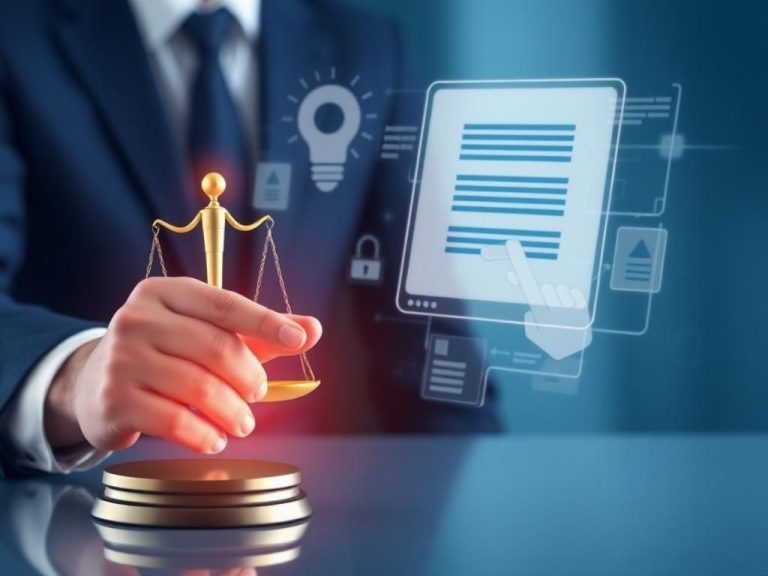In today’s fast-paced world, the legal profession is experiencing a significant transformation driven by advancements in artificial intelligence (AI). As legal practitioners face increasing workloads and the need for efficiency, AI summarization tools are becoming indispensable. These technologies not only streamline the process of managing legal documents but also enhance accuracy and save valuable time. This article explores how AI summarization is revolutionizing legal documents, the technology behind it, its applications, and the future of legal tech.
Understanding AI Summarization
AI summarization refers to the process of using machine learning algorithms to distill vast amounts of information into concise summaries. This capability is particularly beneficial in the legal sector, where professionals must sift through lengthy contracts, case law, and legal briefs. The two primary types of AI summarization are:
- Extractive Summarization: This method identifies and extracts key sentences or phrases from a text to create a summary.
- Abstractive Summarization: This approach generates new sentences to convey the essential information, mimicking how a human might summarize the text.
The Technology Behind AI Summarization
AI summarization tools utilize a range of technologies, including natural language processing (NLP), neural networks, and deep learning. Here’s how these technologies work together:
Natural Language Processing (NLP)
NLP is the backbone of AI summarization. It enables machines to understand and interpret human language. Key components of NLP include:
- Tokenization: Breaking down text into individual words or phrases.
- Part-of-speech tagging: Identifying the grammatical elements of text.
- Named entity recognition: Detecting entities like dates, names, and organizations.
Neural Networks
Neural networks simulate the way the human brain processes information. They are essential for recognizing patterns and making predictions based on large datasets. In summarization, neural networks analyze input text to generate coherent summaries.
Deep Learning
This subset of machine learning involves training models on vast amounts of data. Deep learning is crucial for improving the accuracy and quality of summaries by allowing models to learn complex relationships within the text.
Applications in the Legal Field
The applications of AI summarization in legal practice are wide-ranging, providing numerous benefits:
Contract Review
Lawyers often spend hours reviewing contracts. AI summarization tools can:
- Highlight key clauses and terms.
- Identify potential risks and obligations.
- Provide quick overviews of contract changes or amendments.
Case Law Research
Legal professionals must stay updated on case law, which can be time-consuming. AI summarization helps by:
- Extracting relevant precedents.
- Summarizing lengthy judgments.
- Enabling quicker comparisons between cases.
Client Communication
Summarizing legal documents for clients is essential. AI tools can create:
| Document Type | Summary Type |
|---|---|
| Legal Briefs | Concise overviews |
| Contracts | Key clauses summaries |
| Litigation Reports | Essential findings |
Benefits of AI Summarization in Legal Documents
The incorporation of AI summarization tools in the legal field brings several advantages:
Increased Efficiency
AI tools significantly reduce the time spent on document review. Legal professionals can focus on strategic tasks rather than mundane summarization.
Enhanced Accuracy
AI summarization minimizes human error, ensuring that critical information is not overlooked. The algorithms are designed to highlight the most relevant information consistently.
Cost Savings
By automating the summarization process, law firms can save on manpower costs and improve their overall productivity.
Challenges and Considerations
Despite its advantages, the use of AI summarization in legal documents comes with challenges:
Data Privacy
Legal documents often contain sensitive information. Ensuring that AI systems respect confidentiality and data protection regulations is paramount.
Context Understanding
AI systems may struggle with nuances and context, leading to inaccuracies in summarization. Continuous training and improvement of models are essential.
Dependence on Technology
Over-reliance on AI could lead to a decline in critical thinking and analytical skills among legal practitioners. It is crucial to find a balance.
The Future of AI in Legal Tech
The future of AI summarization in the legal field looks promising. As technology continues to evolve, we can expect:
Improved Models
With advancements in machine learning and NLP, summarization models will become more sophisticated, enhancing both accuracy and relevance.
Integration with Other Legal Technologies
AI summarization will increasingly be integrated with other legal tech solutions, such as case management systems and e-discovery tools, creating a seamless workflow.
Greater Adoption
As more legal professionals recognize the benefits of AI summarization, we will see wider adoption across the industry, leading to a significant shift in how legal services are delivered.
Conclusion
AI summarization is revolutionizing the way legal documents are processed and utilized. By enhancing efficiency, accuracy, and cost-effectiveness, these tools are reshaping the landscape of legal practice. As technology continues to advance, the integration of AI summarization into legal workflows will undoubtedly become a standard practice, allowing legal professionals to focus on what matters most: providing exceptional service to their clients.
FAQ
What is AI summarization for legal documents?
AI summarization for legal documents refers to the use of artificial intelligence technologies to condense lengthy legal texts into concise summaries, making it easier for legal professionals to understand key points quickly.
How can AI summarization improve legal workflows?
AI summarization can significantly enhance legal workflows by reducing the time spent reviewing documents, allowing lawyers to focus on critical analysis and decision-making rather than sifting through extensive paperwork.
Is AI summarization accurate for legal texts?
While AI summarization technology has advanced significantly and offers high accuracy, it is important for legal professionals to review AI-generated summaries for context and precision, especially in complex legal matters.
What are the benefits of using AI for legal document summarization?
The benefits of using AI for legal document summarization include increased efficiency, reduced costs, improved accuracy in understanding legal terms, and enhanced collaboration among legal teams.
Can AI summarization handle different types of legal documents?
Yes, AI summarization can handle a variety of legal documents, including contracts, case law, briefs, and more, providing tailored summaries based on the specific requirements of each document type.
How do I integrate AI summarization into my legal practice?
To integrate AI summarization into your legal practice, you can explore various AI-powered tools and software designed for legal professionals, ensuring they align with your specific needs and compliance requirements.




